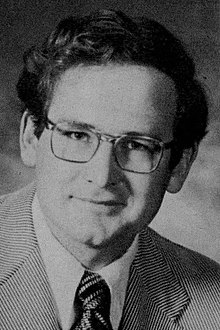Stan Bunn | |
|---|---|
 | |
| Oregon Superintendent of Public Instruction | |
| In office January 4, 1999 – January 5, 2003 | |
| Governor | John Kitzhaber |
| Preceded by | Norma Paulus |
| Succeeded by | Susan Castillo |
| Oregon State Senator | |
| In office 1992–1997 | |
| Preceded by | John Brenneman |
| Succeeded by | Gary George |
| Constituency | District 2 |
| Member of the Oregon House of Representatives | |
| In office 1973 – 1976 1985 – 1992 | |
| Succeeded by | Bill Rutherford (1977–84) |
| Personal details | |
| Born | June 25, 1946 Dayton, Oregon |
| Political party | Republican |
| Spouse | Mary Bunn (divorced 1991) |
| Relations | Jim Bunn Tom Bunn |
| Children | 2 |
| Residence | Newberg, Oregon |
| Occupation | Attorney |
Stan Bunn (born June 25, 1946) is an American politician and lawyer in the U.S. state of Oregon. Born and raised in Yamhill County, he is part of a political family that includes his brother Jim Bunn who served in Congress. A self-described moderate Republican, Stan served in both houses of the Oregon Legislative Assembly, including a successful run for the Oregon House of Representatives while in law school in 1972. Later he served as Oregon Superintendent of Public Instruction from 1999 to 2003, in a political career spanning four decades. In non-elective offices, he was chairman of the state's ethics commission and on the Oregon Traffic Safety Commission between stints in the legislature.
Bunn also made unsuccessful attempts to be elected as Oregon Attorney General in 1976 and to serve in Congress representing Oregon's first congressional district in 1996, when his brother was running for re-election in the neighboring Congressional district. Bunn faced scrutiny over back taxes while Superintendent of Public Instruction and also was accused of committing over one thousand ethics violations by the Oregon Government Ethics Commission, stemming primarily from the use of a state car and use of a state cell phone for personal use. Bunn challenged their findings and later reached a settlement in which he did not admit wrongdoing and paid $25,000 to the Commission in a payment that could not be called a fine.